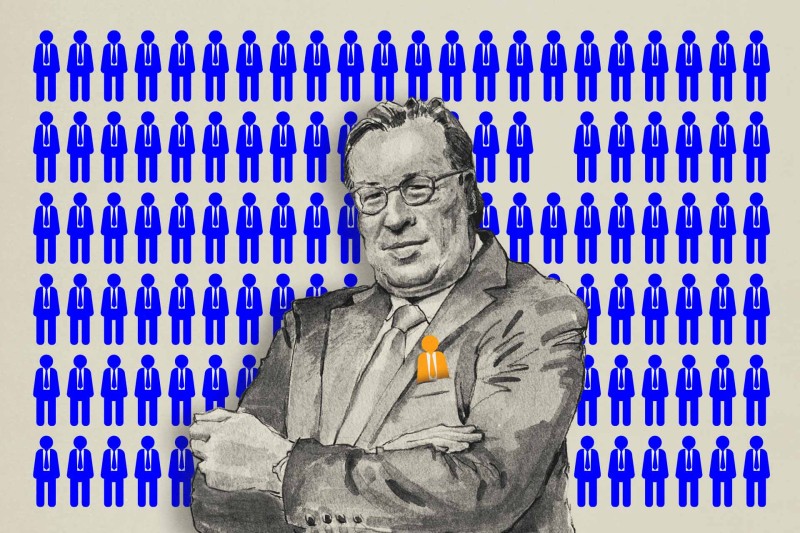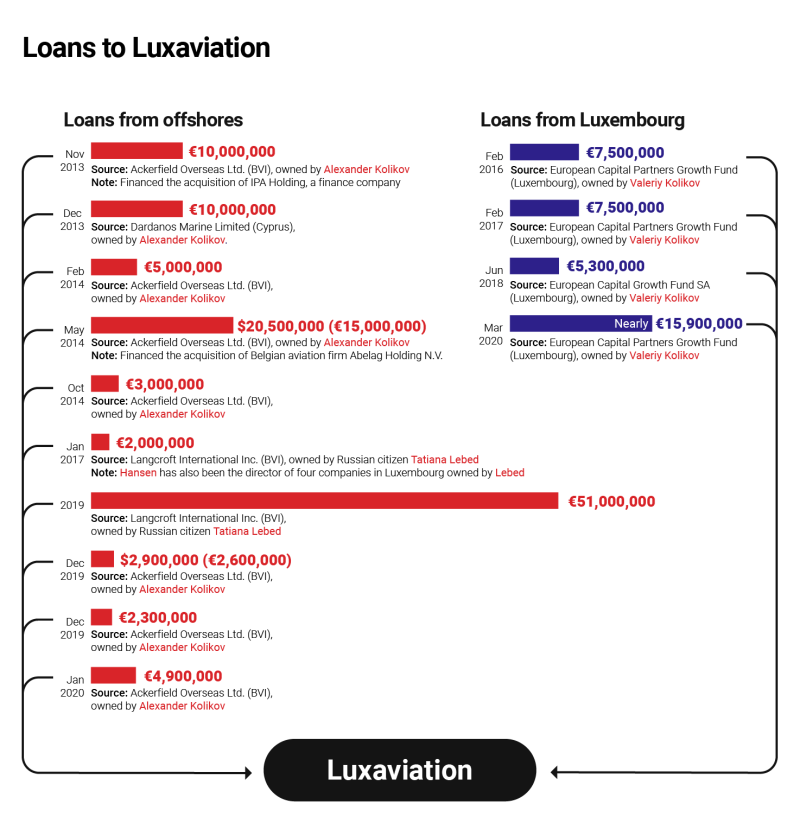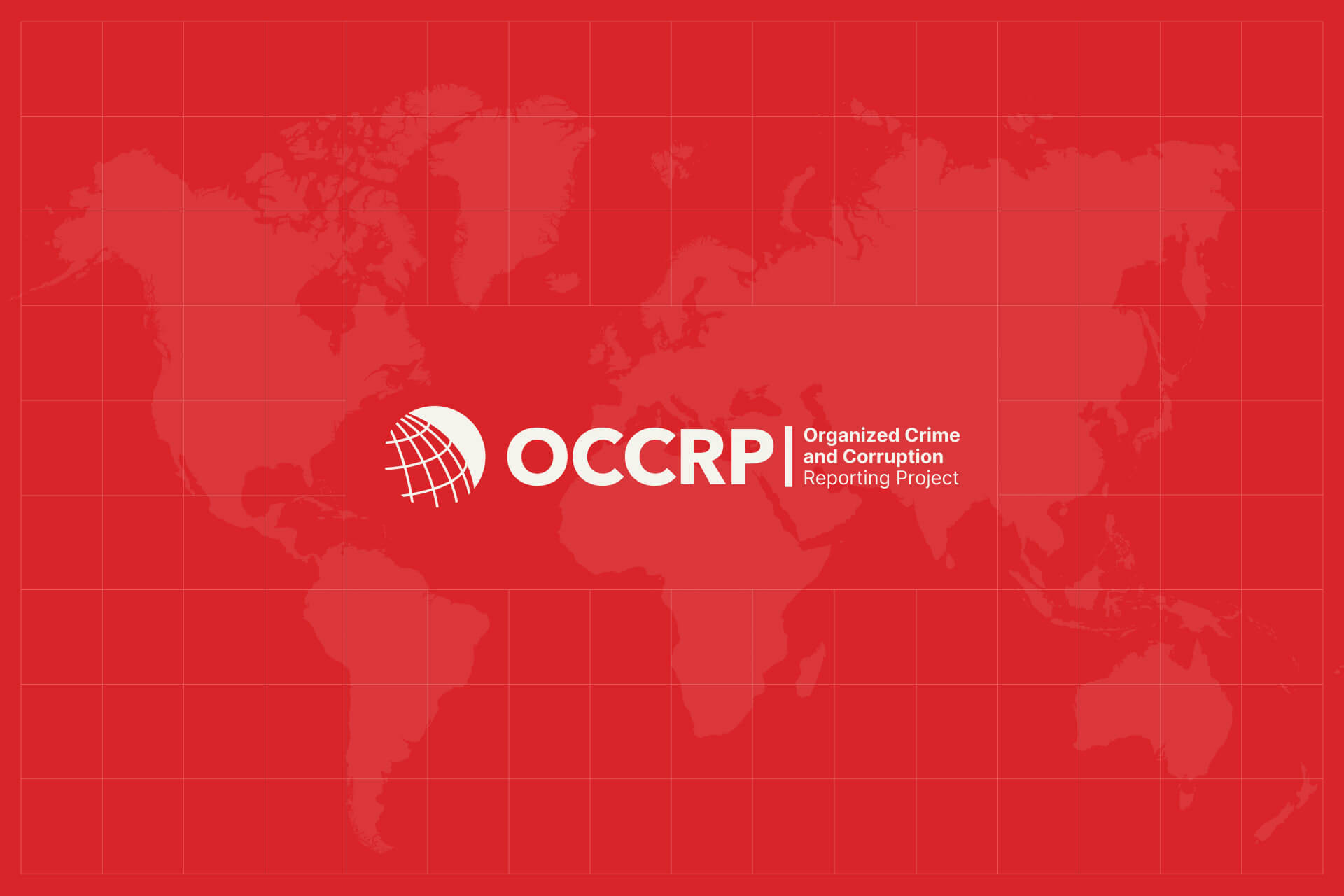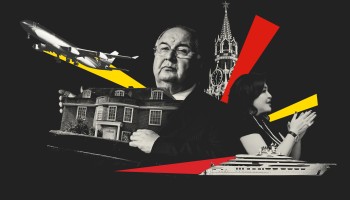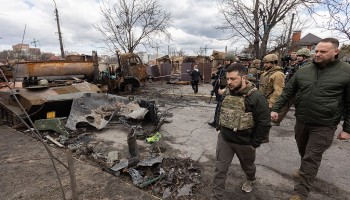Until November, Luxembourg native Patrick Hansen was best known as the CEO of a private aircraft company that has flown luminaries like King Charles III and members of the Belgian royal family.
Then a lawsuit he filed against Luxembourg’s business registry catapulted him into the public eye for very different reasons. Hansen was fighting back against new EU anti-money-laundering rules requiring all companies to publicly disclose their owners, claiming his safety could be put at risk if the public learned which companies he owned. The Court of Justice of the European Union agreed, ruling in his favor and effectively closing down publicly accessible beneficial ownership registers, not only in Luxembourg, but all over Europe.
Transparency advocates decried the ruling, which made it much harder to trace dirty or questionable money. OCCRP and other investigative outlets have published dozens of stories on corruption that would not have been possible without access to information on company ownership.
Journalists also wondered why Hansen was so preoccupied with hiding his tracks. After all, his role at the airline company, Luxaviation, was public and widely known. Why was he refusing to declare its owner? OCCRP and its partners in several European countries decided to investigate.
What reporters found does not explain precisely why Hansen filed his fateful lawsuit or whether he appreciated its far-reaching ramifications. (The businessman told OCCRP that he had only been trying to protect his own privacy and had not wanted the registries to be closed). But it does show why he — or his business partners — might have an interest in corporate secrecy.
As it turns out, Hansen is, or has been, the director or owner of at least 117 companies in Luxembourg, the British Virgin Islands, Belize, the Bahamas, and other countries around the world.
His directorships tie him to two wealthy Russian businessmen operating in the gas business, including one who played a key role in building the strategically important Nord Stream 2 pipeline. One of these businessmen and his son also loaned Luxaviation nearly 100 million euros, fueling its rapid expansion from a small European firm to a private jet company with global reach.
Much of this money arrived in Luxaviation’s accounts through companies based in the British Virgin Islands and Cyprus — jurisdictions where ownership information is hidden under the veil of the same corporate secrecy that Hansen fought for in the European Union.
In another instance, companies directed by Hansen — and owned by a former executive of a subsidiary of Gazprom, the Russian state energy concern — helped move millions between the British Virgin Islands, Luxembourg, and the U.K. via opaque loan agreements, for reasons that remain unclear. Still other companies Hansen directs are linked to the family of a former Russian regional governor and an Iraqi businessman implicated in a major corruption scandal.
The large number of companies Hansen is involved in, especially those in offshore jurisdictions, suggests he may be acting as a proxy — fronting companies on behalf of someone else rather than engaging in genuine business — and helping conceal the movement of funds, according to anti-money-laundering expert Graham Barrow.
“When someone’s name appears as a director for multiple companies, and all the more so when it is approaching a hundred, it is simply not possible to act in an executive capacity for all of them,” he said after reviewing OCCRP’s findings. “In my experience, this number of directorships is strongly associated with being a ‘proxy,’ while, in reality, others operate behind the scenes.”
Konrad Duffy, a financial crime expert at the German nonprofit Finanzwende, offered a similar assessment: “It is hardly possible to manage a hundred companies at the same time,” he said, calling Hansen’s large number of directorships “suspect.”
In all of these cases, Hansen and his business associates seem to have taken advantage of jurisdictions that promise corporate secrecy, like the British Virgin Islands. Luxembourg itself was such a haven before it set up its beneficial ownership register in 2019 to comply with new EU rules. OCCRP and its partners were only able to learn who owned most of these companies by drawing on leaked information from the Pandora Papers.
Transparency advocates say corruption, money laundering, and tax evasion can flourish in environments where company ownership is secret.
“It’s not just an anti-corruption thing,” added Helen Darbishire, a transparency activist who founded the advocacy group AccessInfo. “Public access to [beneficial ownership] records has many more benefits. For entrepreneurs, it is important to know who they are doing business with. … A citizen has the right to know who is the ultimate owner of the media [they consume] or to know if a product they consume is produced by a company owned by a Russian oligarch.”
Transparency is also a moral issue, said Duffy.
“Public access is important for a cultural change, away from the belief that there is a right to anonymous corporate structures, towards a more transparent and honest system.”
Why We Published This Story
Patrick Hansen has argued in court that his corporate holdings should not be exposed because of risks that he might be kidnapped or that his personal safety could be compromised, so OCCRP took the decision to publish this story very seriously.
Hansen told OCCRP that all his businesses were in full compliance with anti-money laundering regulations, and that any loans he received had moved through banks with careful compliance checks.
“This is not money that comes in suitcases,” he said.
He conceded that he did run a “more than average” number of companies, but he said he had a large staff to help him.
“You ask yourself, ‘How can Patrick do that?’ Fair question. Sometimes I ask myself also. I work late. I am working more than 12 hours [per day]...” he said. “I do not have hobbies like playing football or playing ping pong. I spend my time working.”
Reporters found 117 companies either owned or directed by Hansen over the past 16 years.
(There could be many more, since he has sued to keep from having to declare which companies he owns.)
Many were related to aviation and finance.
But some were surprisingly far afield.
They were registered in countries around the world, including well-known secrecy havens like Belize, the British Virgin Islands, and Luxembourg.
The 90 companies he directed often had “beneficial owners” from Russia.
We took a closer look at some of them.
Sigrun Finance, in the British Virgin Islands, was owned by the wife and mother of Vladimir Gruzdev, a legislator for Vladimir Putin’s United Russia Party.
They used its subsidiary in the British Virgin Islands to manage yacht staff. They also used Sigrun to buy a nearly 2-million-euro stake in one of Hansen’s companies in Luxembourg.
Another company directed by Hansen, this one based in Cyprus, has a large real-estate portfolio in Russia, including a business center and multiple plots of land in Moscow. It also had $99 million in cash on hand as of 2019, according to its most recent available accounts.
Its owner is hidden from public view since Cyprus shut down its beneficial ownership register, but it co-owns a real estate business with Gruzdev’s son, Grigori.
Hansen also directed a Luxembourg firm owned by Alexei Bazhenov, a Russian investor and former executive at Gazprom subsidiary ZAO Yamalgazinvest.
The Luxembourg company, in turn, owned two of Bazhenov’s companies in the British Virgin Islands. They all loaned millions of euros and pounds back and forth in complex arrangements whose purpose is unclear.
Bazhenov and Hansen also co-direct several U.K. companies that hold commercial real estate across the country.
Closer to home, Hansen is the director of three Luxembourg-based companies owned by a controversial Iraqi businessman implicated in the “Elf Affair,” one of the biggest corruption scandals in French history…
… a Luxembourg company created by Nikolai Bogachev, a former KGB agent, to explore for oil in Africa. …
… and 16 companies owned by Russian businessman Valeriy Kolikov and his son Alexander. The Kolikovs work in the maritime and natural resources sectors; their company MRTS is one of the biggest underwater pipeline builders in Russia.
But they were using European companies to conduct at least some of this business, using a group of Cyprus-based firms to own and manage ships, send construction materials to Russia, and move money.
These companies are, or at some point were, all owned by a Luxembourg company — Maritime Construction Services SA, which Hansen directs on behalf of its owner — Alexander Kolikov.
This wasn’t only the link between Hansen and the Kolikovs. Even as Hansen directed the family’s businesses, they seem to have been key to Luxaviation’s success.
Hansen, who is now 50, spent several years in the 2000s working as a consultant in Russia, then co-founded Luxaviation in 2008 alongside Nikolai Bogachev, a former KGB agent who became an oil magnate after the fall of the Soviet Union. (Bogachev denied this, telling OCCRP reporters he could not explain why his name was on the company documents and that he was not involved in Luxaviation.)
Bogachev left the company the following year, documents show, and Hansen became CEO in 2010. Under his management, Luxaviation began to expand rapidly, snapping up a series of European competitors, including the major Swiss private jet firm Execujet. In a 2019 profile in Luxembourger Wort newspaper about his business success, Hansen dismissed “reports that speak of investments by Caribbean companies.”
“We are a public company and 33 percent belongs to the Chinese group Minsheng Investment, the remaining 70 percent belongs to investors from Luxembourg or Belgium,” he said. “Extremely sobering for people who are looking for scandals.”
But OCCRP learned that the company’s shopping spree was at least partly financed by massive loans from offshore companies owned by Alexander Kolikov, the maritime millionaire’s son, as well as another Russian investor. Here’s how the money flowed in:
Nick Mathiason, director of the financial investigative journalism center Finance Uncovered, said it was unusual that Luxaviation had received such large loans from offshore companies owned by prominent Russian citizens.
“To my mind it raises questions as to why these enormous loans were necessary, what the loans went towards, and what the lenders got in return,” he said.
Hansen told OCCRP that while the Kolikov family had indeed funded Luxaviation, they had not put 100 million euros into the company. He declined to name the exact figure, but said he had repaid many of their loans already, and that he had always been fully transparent about the financing of Luxaviation.
“I’ve raised money through many different sources over the last 12 years,” he said, adding that it was no secret he had received loans from British Virgin Islands companies, and there was no requirement for him to disclose those companies’ owners.
He said none of his Russian business partners had been sanctioned, and that attitudes in Europe toward Russian investment had been very different in the years before the war in Ukraine.
“I understand that I am involved around the world with a whole series of more or less interesting characters. That’s far from being a crime.”
Valeriy Kolikov, Alexander Kolikov, and Alexei Bazhenov did not respond to requests for comment.
Today, Luxaviation claims to be the second largest private jet company in the world. According to its website, it operates more than 260 jets and helicopters. Hansen is also the co-founder and partner of two Luxembourg-based investment companies, Saphir Capital Partners and Edison Capital Partners, according to a biography on one of his company websites.
The biography doesn’t mention the dozens of other companies in Luxembourg, Cyprus, the U.K., Belize, and the British Virgin Islands that Hansen is involved in.
Barrow, the anti-money-laundering expert, said it was impossible to say for sure what Hansen was doing, but some of his dealings appeared to have “red flags” that should mark them for further investigation.
“The appearance of seemingly unnecessary complexity within a corporate structure, especially when that involves numerous different jurisdictions, including those labeled as ‘offshore,’ is typical of structures put together to obfuscate the flow of money, often to hide its illegitimacy,” he said.
Lara Dihmis (OCCRP ID) contributed research.
